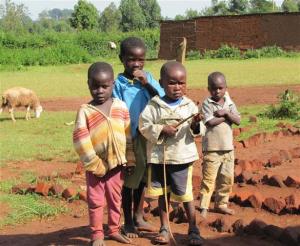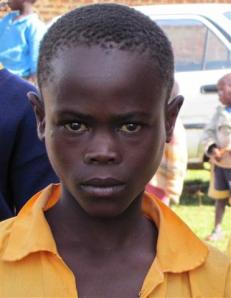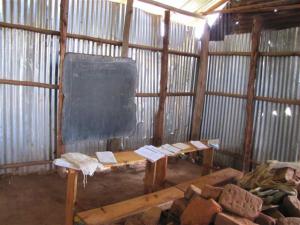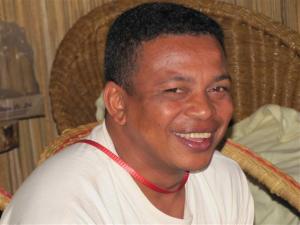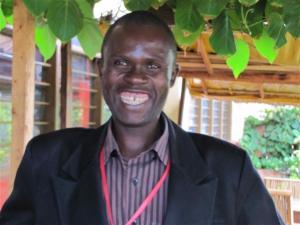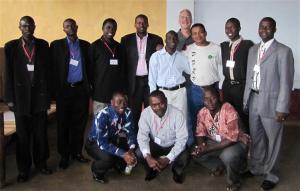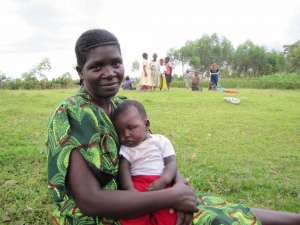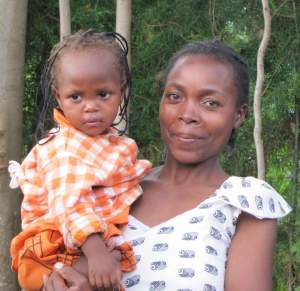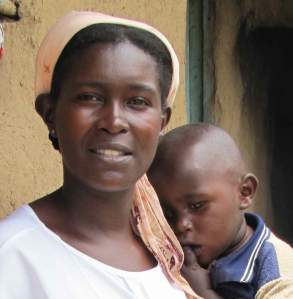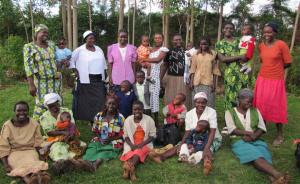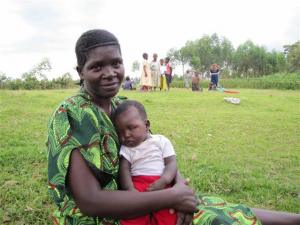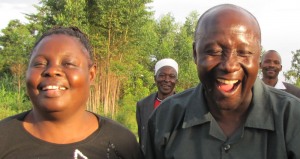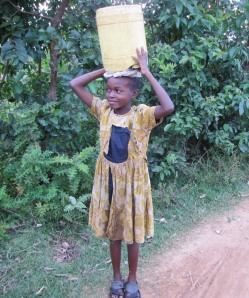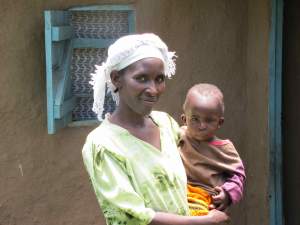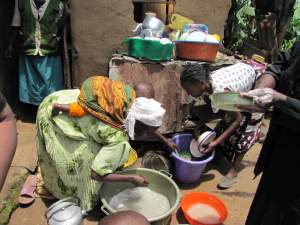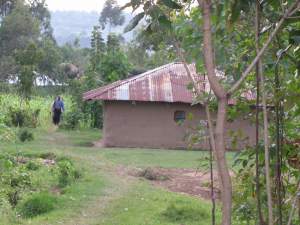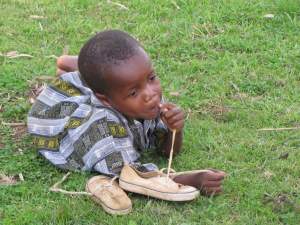— Liberty School
 Brooks
Brooks
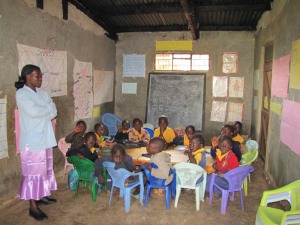 The land has at long last been bought for Liberty School in Bikeke Village (see the attached photo)!!!! Needless to say, John Wanyonyi, the founder and Director of the school, is ecstatic. And, thankfully, Steven Alembe, Appleseed’s Community Development Director, has the project on track for next steps in the upcoming months. Hopefully, we will be able to see the first building(s) started and maybe even completed by mid December.
Several days we were able to spend time in Bikeke visiting with the students, teachers, and walking around the village itself. It’s very common to see women at a communal well pumping water into large yellow plastic containers. They then carry the heavy jugs back to their damp, dirt-floored mud huts for drinking, cooking and even washing. Person after person told me, “Life is HARD, very HARD here. Often there is not food to eat.” It is heart-wrenching, at a minimum, and truly hard to see and even begin to comprehend. Many, if not most, of the children wander about filthy, without shoes, wearing shredded clothes that we would consider rags for cleaning at best. Men sit aimlessly without work. The mud, dirt and grime are everywhere. Women carry HUGE bundles of vegetables or clothes for washing down to the river accepting the hardship of their lives. Still, they hope to exist one more day and that somehow their children will have a better life by some miracle or circumstance beyond their wildest imaginations.
And, it is so obviously true, even for Liberty School, NOTHING can happen to truly change the lives of these precious orphans and children, without the mercy and grace of our very big God. Conditions for the children attending the school, too, are incredibly unbelievable. As a North American, it’s hard to even grasp that human life can actually exist with such minimal nourishment and care.
The needs are endless: curriculum, paper, pencils, desks, chairs, chalkboards, even a ball or skipping rope so the children can have something to play with during recess time. Even more importantly, a bowl of porridge in the morning is needed, because most students have not eaten since…when??? It can all be somewhat overwhelming, especially knowing there are literally thousands of African children just like the ones we have met and seen. BUT, after talking with the teachers at this particular school, who themselves are very poor, I am compelled to stand with them for these specific children in this particular village, agreeing with them that our God is that gracious, that powerful, that loving and can and will do something miraculous in the lives of these special children.
And, it’s true! It’s already, happening because of YOU!!!! With the purchase of the land and classrooms soon coming, the miracle is unfolding! These children are being given an opportunity and chance. They are literally choosing not to stay at home. They are welcomed and encouraged to come to Liberty School (without having to pay the normal fees for public school and even if they don’t have the required shoes, uniforms). They want come because they want so much to learn. Because of this opportunity their lives are already being changed. They are truly being propelled into the world of literacy and all the choices in life that will bring. While there is much to lament about, we are THRILLED to be a small part of changing a few lives forever in this remote village in Africa. God has not forgotten these precious ones. Asante sana (thank you so much) for saying “yes” and helping to make the miracles happen.
The land has at long last been bought for Liberty School in Bikeke Village (see the attached photo)!!!! Needless to say, John Wanyonyi, the founder and Director of the school, is ecstatic. And, thankfully, Steven Alembe, Appleseed’s Community Development Director, has the project on track for next steps in the upcoming months. Hopefully, we will be able to see the first building(s) started and maybe even completed by mid December.
Several days we were able to spend time in Bikeke visiting with the students, teachers, and walking around the village itself. It’s very common to see women at a communal well pumping water into large yellow plastic containers. They then carry the heavy jugs back to their damp, dirt-floored mud huts for drinking, cooking and even washing. Person after person told me, “Life is HARD, very HARD here. Often there is not food to eat.” It is heart-wrenching, at a minimum, and truly hard to see and even begin to comprehend. Many, if not most, of the children wander about filthy, without shoes, wearing shredded clothes that we would consider rags for cleaning at best. Men sit aimlessly without work. The mud, dirt and grime are everywhere. Women carry HUGE bundles of vegetables or clothes for washing down to the river accepting the hardship of their lives. Still, they hope to exist one more day and that somehow their children will have a better life by some miracle or circumstance beyond their wildest imaginations.
And, it is so obviously true, even for Liberty School, NOTHING can happen to truly change the lives of these precious orphans and children, without the mercy and grace of our very big God. Conditions for the children attending the school, too, are incredibly unbelievable. As a North American, it’s hard to even grasp that human life can actually exist with such minimal nourishment and care.
The needs are endless: curriculum, paper, pencils, desks, chairs, chalkboards, even a ball or skipping rope so the children can have something to play with during recess time. Even more importantly, a bowl of porridge in the morning is needed, because most students have not eaten since…when??? It can all be somewhat overwhelming, especially knowing there are literally thousands of African children just like the ones we have met and seen. BUT, after talking with the teachers at this particular school, who themselves are very poor, I am compelled to stand with them for these specific children in this particular village, agreeing with them that our God is that gracious, that powerful, that loving and can and will do something miraculous in the lives of these special children.
And, it’s true! It’s already, happening because of YOU!!!! With the purchase of the land and classrooms soon coming, the miracle is unfolding! These children are being given an opportunity and chance. They are literally choosing not to stay at home. They are welcomed and encouraged to come to Liberty School (without having to pay the normal fees for public school and even if they don’t have the required shoes, uniforms). They want come because they want so much to learn. Because of this opportunity their lives are already being changed. They are truly being propelled into the world of literacy and all the choices in life that will bring. While there is much to lament about, we are THRILLED to be a small part of changing a few lives forever in this remote village in Africa. God has not forgotten these precious ones. Asante sana (thank you so much) for saying “yes” and helping to make the miracles happen.
